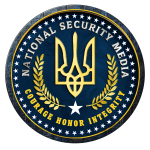UNITED STATES OF AMERICA v. DONALD J. TRUMP,
Defendant. * * * * * * * *
CRIMINAL NO. 23-cr-257 (TSC)
GOVERNMENT’S MOTION FOR IMMUNITY DETERMINATIONS
In Trump, the Supreme Court held that former presidents are immune from prosecution for core official acts, enjoy at least a rebuttable presumption of immunity for other official acts, and have no immunity for unofficial acts, and remanded to this Court for further proceedings consistent with its holding. 144 S. Ct. at 2327, 2332, 2347. This section sets forth the applicable legal principles, and then Section II applies them to the categories of conduct that the superseding indictment alleges and that the Government intends to prove at trial in order to demonstrate that none of the defendant’s conduct is immunized.
In Trump, the Supreme Court announced the principles that govern a former President’s claim of constitutional immunity from federal criminal prosecution. The Supreme Court divided presidential acts into three categories: (1) core presidential conduct that Congress has no power to regulate and for which a former President has absolute immunity; (2) other official presidential acts for which the President has at least presumptive immunity; and (3) unofficial conduct for which the President has no immunity. Id. at 2327, 2331-32.
With respect to the first category of core official conduct, when the President’s authority to act is “conclusive and preclusive,” Congress may not regulate his actions, and the President has absolute immunity from criminal prosecution. Id. at 2327 (quoting Youngstown Sheet & Tube Co. v. Sawyer, 343 U.S. 579, 638 (1952) (Jackson, J., concurring)). Applying those principles to the original indictment, the Supreme Court concluded that the defendant is “absolutely immune from prosecution for the alleged conduct involving his discussions with Justice Department officials” and his threatened removal of the Acting Attorney General. Id. at 2335. The superseding indictment omits those allegations, and the Supreme Court did not find that any other conduct alleged in the original indictment implicated “conclusive and preclusive” presidential authority. See id. at 2335-40.
The threshold question here, then, is whether the defendant can carry his burden to establish that his acts were official and thus subject to presumptive immunity. Id. at 2332; see Dennis v. Sparks, 449 U.S. 24, 29 (1980) (noting that for immunity doctrines, the burden is on the official claiming immunity to demonstrate his entitlement). Official conduct includes acts taken within the outer perimeter of the President’s official responsibilities, covering actions so long as they are “not manifestly or palpably beyond [his] authority.” Trump, 144 S. Ct. at 2333 (quoting Blassingame, 87 F.4th at 13). But consistent with the D.C. Circuit’s opinion in Blassingame, the Supreme Court suggested that a President who speaks as a “candidate for office or party leader”—as the defendant did here—does not act in his official, presidential capacity. Id. at 2340. As the D.C. Circuit explained, a President acting as a “candidate for re-election” is, to that extent, not carrying out an official responsibility. Blassingame, 87 F.4th at 17; accord id. at 5 (“When a sitting President running for re-election speaks in a campaign ad or in accepting his political party’s nomination at the party convention, he typically speaks on matters of public concern. Yet he does so in an unofficial, private capacity as office-seeker, not an official capacity as office-holder. And actions taken in an unofficial capacity cannot qualify for official-act immunity.”) (emphasis in original).
To assess whether a presidential action constitutes an “official” act, courts must apply an “objective analysis” that focuses on the “content, form, and context” of the conduct in question. Trump, 144 S. Ct. at 2340 (quoting Snyder v. Phelps, 562 U.S. 443, 453 (2011)). A President’s motives for undertaking the conduct and the fact that the conduct is alleged to have violated a generally applicable law are not relevant considerations. Id. at 2333-34.
If a President’s actions constitute non-core official presidential conduct, he is at least presumptively immune from criminal prosecution for that conduct. 144 S. Ct. at 2328, 2331; id. at 2332 (reserving whether this immunity is presumptive or absolute… [b]ecause we need not decide that question today). The Government can overcome that presumptive immunity by demonstrating that applying a criminal prohibition to that act would pose no “dangers of intrusion on the authority and functions of the Executive Branch.” Id. at 2331-32 (quoting Fitzgerald, 457 U.S. at 754). Just as the inquiry into whether conduct is official or unofficial is necessarily factbound, Trump, 144 S. Ct. at 2340, with “the necessary analysis [being]… fact specific,” id. at 2339, so too should be the inquiry into whether any “presumption of immunity is rebutted under the circumstances,” id. at 2337. The analysis should first identify the specific alleged act at issue and then determine whether criminal liability for the act intrudes on a relevant Executive Branch authority or function, taking care not to “conceive[] of the inquiry at too high a level of generality.” Banneker Ventures, LLC v. Graham, 798 F.3d 1119, 1141 (D.C. Cir. 2015) (reversing district court in civil immunity case). Such an approach recognizes that Executive authority has limits—boundaries imposed by constitutional text, the separation of powers, and precedent—and that application of criminal law to the President’s official conduct does not per se intrude impermissibly on Executive Branch authority and functions. Cf. Trump, 144 S. Ct. at 2327 (“If the President claims authority to act but in fact exercises mere ‘individual will’ and ‘authority without law,’ the courts may say so.”) (quoting Youngstown, 343 U.S. at 655 (Jackson, J., concurring)).
These principles for assessing whether the conduct alleged in the superseding indictment is immune apply equally to evidence. The Government may not introduce evidence of immunized official conduct against a former President at a trial, even to prove that the former President committed a crime predicated on unofficial conduct. Id. at 2340-41.
